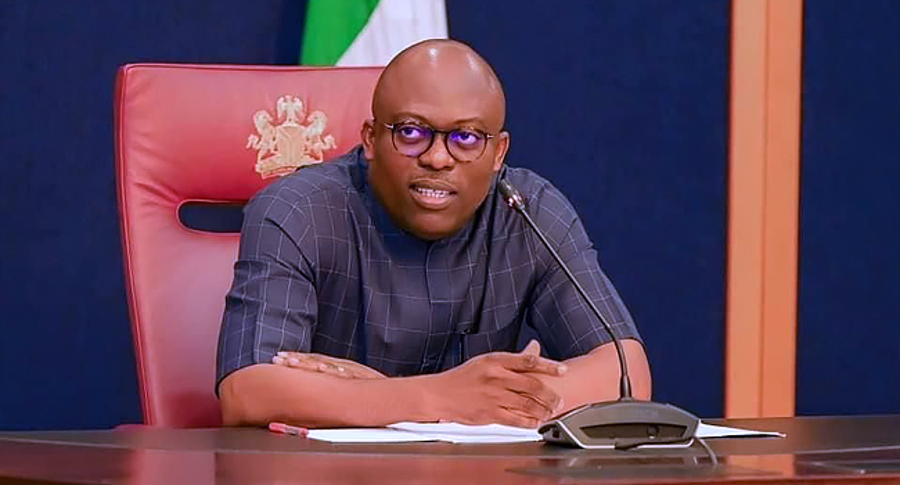Headlines
BREAKING: Supreme Court Dismisses Gov Fubara’s Suit to Remove 27 Pro-Wike Lawmakers

The Supreme Court has dismissed Governor Fubara’s lawsuit seeking the removal of 27 lawmakers loyal to Wike, marking a major legal setback in the Rivers State political crisis.
The Supreme Court has delivered a significant ruling by dismissing the lawsuit filed by Rivers State Governor, Siminalayi Fubara, which sought to remove 27 members of the State House of Assembly. The governor had challenged the legitimacy of these lawmakers on the grounds of their alleged defection from the People’s Democratic Party (PDP) to the All Progressives Congress (APC). This decision marks a pivotal moment in the ongoing political dynamics within Rivers State and has broader implications for the interpretation of constitutional provisions regarding defections by elected officials.
Governor Fubara’s suit was rooted in the claim that the 27 lawmakers had forfeited their seats in the State House of Assembly by abandoning the PDP, the party under which they were elected, and joining the APC. Such defections, according to the governor, violated constitutional provisions that mandate elected officials to remain loyal to the political party that sponsored their election unless under specific circumstances. The governor argued that their actions had created a constitutional crisis and undermined the democratic process in the state.
However, the Supreme Court’s dismissal of the suit signifies a judicial interpretation that either the defection did not meet the threshold for disqualification or that the legal grounds presented by the governor were insufficient to warrant the removal of the lawmakers. This ruling has sparked widespread debate, with some legal experts and political analysts suggesting that it sets a precedent for how defection cases are handled in Nigeria’s political landscape. Others, however, have expressed concerns that the decision could embolden elected officials to switch parties without facing significant consequences, potentially destabilizing the political system.
The case also highlights the deep-seated political tensions in Rivers State, which has long been a battleground for power struggles between the PDP and the APC. The defection of the 27 lawmakers was seen as a major blow to the PDP’s dominance in the state and a strategic gain for the APC. Governor Fubara’s legal challenge was widely interpreted as an attempt to reclaim political control and restore the balance of power in favor of the PDP. The Supreme Court’s ruling, however, has effectively upheld the status quo, allowing the defected lawmakers to retain their seats and continue their legislative duties.
Reactions to the court’s decision have been mixed. Supporters of the governor have expressed disappointment, arguing that the ruling undermines the principles of party loyalty and democratic representation. On the other hand, members of the APC and their allies have hailed the decision as a victory for democracy and the rule of law, emphasizing the importance of judicial independence in resolving political disputes.
The implications of this ruling extend beyond Rivers State, as it raises questions about the effectiveness of constitutional provisions designed to prevent arbitrary defections by elected officials. Critics argue that the current legal framework may need to be strengthened to address the growing trend of party-switching, which often appears to be motivated by personal or political gain rather than ideological alignment or the interests of constituents.
The Supreme Court’s dismissal of Governor Fubara’s suit represents a critical juncture in Nigeria’s political and legal landscape. While it resolves the immediate dispute over the legitimacy of the 27 Rivers State lawmakers, it also underscores the need for a broader conversation about the role of political parties, the accountability of elected officials, and the mechanisms in place to safeguard the integrity of the democratic process. As the political climate in Rivers State and across Nigeria continues to evolve, this ruling will likely serve as a reference point for future debates on the intersection of law, politics, and governance.
